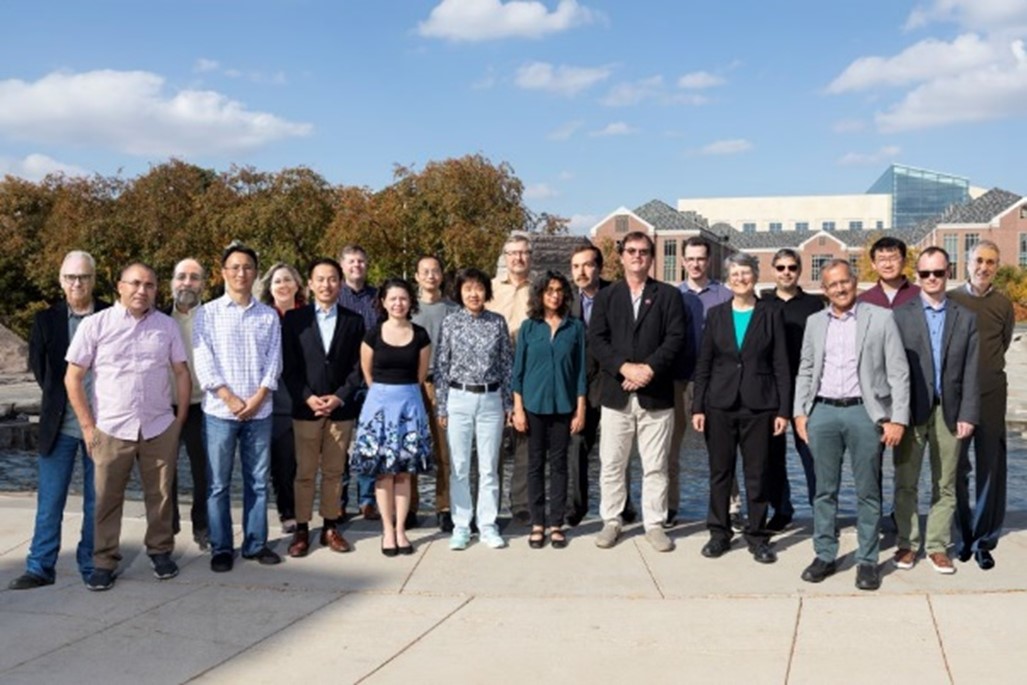The University of Nebraska-Lincoln (UNL) funded 11 new Grand Challenges projects in year two of UNL’s four-year Grand Challenges Initiative (GCI), via a $40 million targeted investment by UNL in seven grand challenges themes. This program includes a $4.2 million Catalyst award titled Quantum Approaches Addressing Global Threats: one of the largest of the GCI awards, representing the GCI theme Quantum Science and Engineering. This award’s team is led by Christian Binek, a UNL physics professor and director of the Nebraska Center for Materials and Nanoscience, and Susan Hermiller, a UNL professor of mathematics. Binek is also scientific director of Nebraska’s Emergent Quantum Materials and Technologies (EQUATE) research collaboration, funded by National Science Foundation EPSCoR for five years and $20 million.
Nebraska and the nation rely on well-trained quantum scientists and engineers to grow the economy through cooperation between technology-driven industries and innovation stimulated by academic institutions, yielding significant economic benefits, including consumer products and job opportunities in Nebraska’s local technology sector, the “Silicon Prairie.” As with EQUATE, UNL’s Grand Challenges quantum initiative emphasizes developing individual and community growth in this rapidly evolving field.
In the past two decades UNL has become a leader in nano and materials science with interdisciplinary Materials Research Science and Engineering Centers, funded by the National Science Foundation (NSF). UNL established the Nebraska Center for Materials and Nanoscience (NCMN) and the NSF-supported Nebraska Nanoscale Facility (NNF), which have collaborated with Nebraska industry (e.g., Monolith Materials, manufacturer of carbon nanoparticles). UNL is well-positioned to explore transdisciplinary aspects of quantum science and engineering, and to emphasize, prioritize, and grow the number and diversity of constituents participating, for greater workforce development with economic and societal benefits. UNL’s quantum science and engineering initiative can help extend Nebraskans’ understanding of the second quantum revolution and its application in quantum materials, quantum optics, and nanophotonics. This initiative can also help increase the number of STEM students, and add innovative and interdisciplinary learning experiences, by addressing the following key questions:
• How can we use widely counterintuitive concepts of quantum mechanics to develop and build next-generation devices that will have large-scale impacts on society, public health, and the economy?
• How can we routinely use quantum effects, such as entanglement, superposition, tunneling, and topology, to improve our everyday life?
• How can we advance the understanding of the connection between subatomic phenomena and the macroscopic world?
Learn more about UNL Grand Challenges Initiative and its Quantum Science and Engineering project here.

Courtesy photo: Christian Binek, Charles Bessey Professor of physics and director of the Nebraska Center for Materials and Nanoscience, and Susan Hermiller, Willa Cather Professor of mathematics, stand with members of the Quantum Science and Engineering team with UNL’s Grand Challenges Initiative..
###